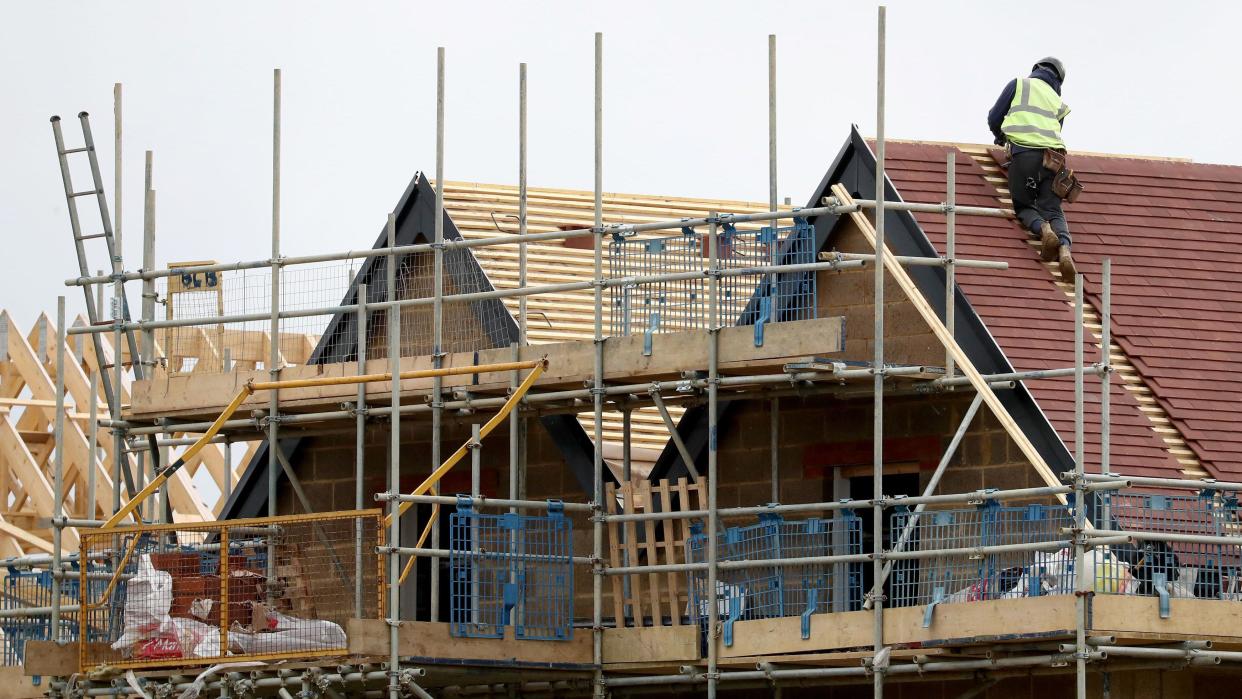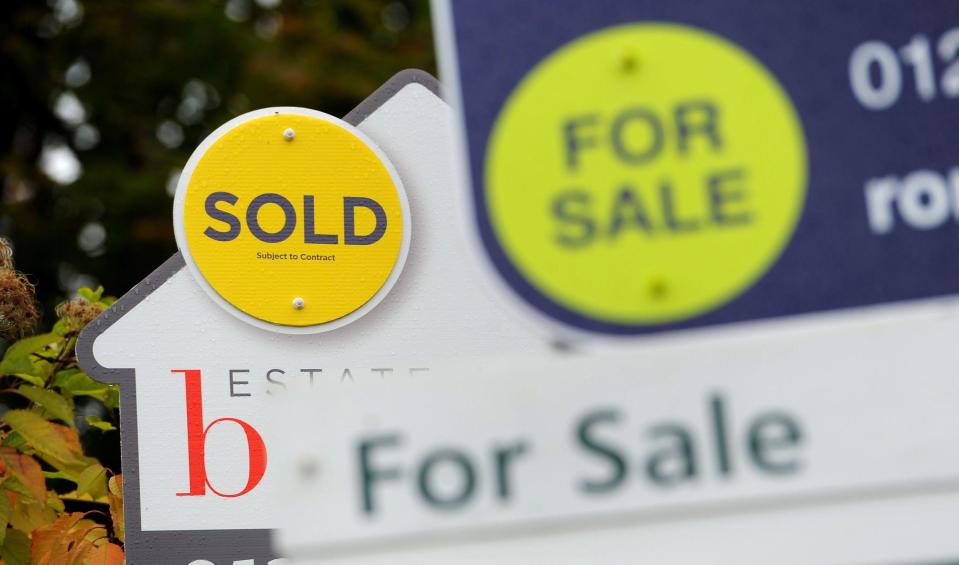How housing - and the lack of it - became an election issue

Homes and housing have built up a higher profile than usual in this election campaign.
Getting started in home ownership has become more difficult thanks to the large deposits required for a mortgage and sharply increased higher mortgage costs.
There is a shortage of homes, the costs of buying and renting are up, construction costs have increased and homelessness has been rising.
High net migration brings more demand for homes and demographic changes mean more people living alone, which means more households.
Why is this an 'Emergency'?
Prompted by several local councils and cornered by rival parties, the SNP government recently conceded there is a 'housing emergency' in Scotland.
Councils say they cannot meet their legal obligations on homelessness.
The most recent official figures show a 10% one-year increase in the number of homeless households, at more than 32,000.
The number of people in temporary accommodation is up 52% since 2014, reaching 15,000 households, according to the charity Shelter.
The house builder body, Homes for Scotland, cites its own survey evidence when it says 14% of households in Scotland have 'concealed households' - people who would move out if they could afford to.
Private rents in Scotland are up, the average up by a third in five years. More students mean more demand and higher city rents.
Councils say they do not have sufficient funds to buy, build or renovate properties.

For owner-occupiers, the typical price is up by more than a third in the past five years.
There are hot spots, notably in and around Edinburgh.
There are also rural 'not spots', where employers warn the housing shortage is a brake on economic growth.
There's broad agreement that increased demand for housing requires increased supply. The SNP government has plans to support the building of 110,000 affordable homes in the decade to 2032, 70% of them for social rent, and 10% rural.
Housing experts doubt that is achievable. One housing association forum says a more realistic target, on current funding, would be 60,000.
There are greater housing pressures and higher costs in parts of England, and much of this issue in Scotland is for the next Holyrood election - which does not mean it can't be raised now.
What's in play at this election?
The rising cost of a mortgage affects the whole UK. The cost of borrowing rose sharply when financial markets were spooked by the unfunded tax cuts in the Liz Truss mini-budget of autumn 2022.
That has unwound. The pressures that keep the Bank of England from cutting interest rates now are price and pay inflation. Its job is to cut inflation by slowing demand, which is difficult when that is already weak.
This Wednesday brings the latest figures on rising prices, home prices and rents. On Thursday, the Bank of England will say whether or not it's cutting the base lending rate. Any cut is already coming later than expected.
There are other housing market levers that are pulled at Westminster and the Bank of England, including the tax regime for landlords.
The incentive to invest in rental properties has been reduced in recent years and the capital budget for central government to support house-building is sharply down.
The UK Treasury cut capital spending and Scottish ministers chose to pass much of that on to housing - down £196m this year, or 26%. Although £40m has since been found to offset that.
What can Holyrood do?
Most of the responses to housing pressures are devolved, meaning much of the election debate is about England.
Where politicians offer reformed versions of shared equity or a mortgage guarantee to ease the burden of that first purchase, these have been designed differently in Scotland.
A Housing Bill is making its way through Holyrood. That strengthens tenant rights, including the right to keep a pet.
The contentious part of the bill is in rent control. There has been a rent freeze and then a rent cap in Scotland but that was temporary and had to be withdrawn while a permanent replacement was drawn up.
Despite that cap, or arguably because of it, rents in Scotland have been rising faster than the rest of the UK.
Private landlords have been hiking rents between tenancies, getting ahead of a future cap on existing tenancies.
The question at Holyrood is: what happens to that rent cap plan now that Patrick Harvie and the Scottish Greens are no longer steering the bill?
The new, more business-friendly SNP leadership concedes the harm to investment in rental, increasing risk to the returns landlords can expect.
Why does planning matter?
Labour says there should be for a 'blitz' on planning rules. Sir Keir Starmer says he is willing to make enemies over his plans to speed up new electricity grid connections.
He can expect resistance also to plans for new towns to reach a target of 1.5 million new homes in the next five years.
That won't apply in Scotland, but there are parallel pressures for faster planning north of the border.
It presents blockages to new housing and to the huge potential for renewable energy. Planning obstacles can mean new grid connections take up to 14 years.
Local campaigns in the north and north-east of Scotland make this a hot topic of debate. It could get hotter and more widespread by the 2026 Holyrood election.
And while many complex applications are on the way for renewable energy consents, there is already a shortage of qualified planners in Scottish local authorities.
What would the parties do?
This week, we'll see more from the Scottish parties as they publish manifestos, giving a foretaste of 2026.
So far, Labour's Anas Sarwar has talked about combining council planning departments to help prioritise expertise on the most important applications for the economy.
Scottish Liberal Democrats are not alone in wanting to see more funds going into improved energy efficiency in homes.
Their manifesto, the first to be published, proposes improved construction skills training and a new programme for key worker housing in places where carers, nurses and teachers struggle to afford homes near their work.
Also in common with others, Scottish Conservatives want to see empty homes back in use. The party plans a national fund for that.
In addition to housing bill measures, the SNP wants the UK government to reverse its capital budget cut this year.


